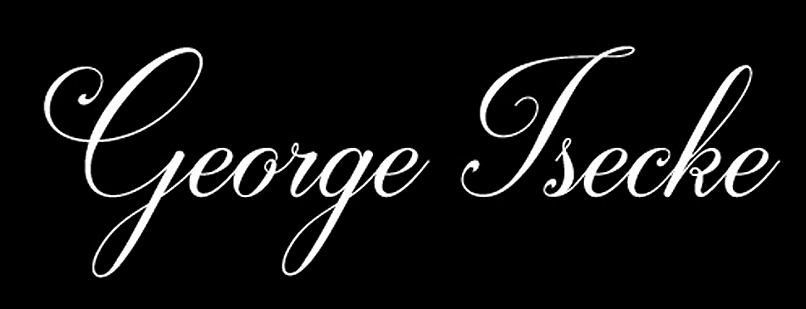
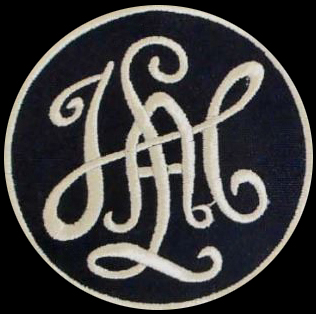
This 1990 interview was done with Hauptsturmführer George Isecke, member of LAH (Leibstandarte-SS Adolf Hitler) and HJ (Hitler Youth) divisions.
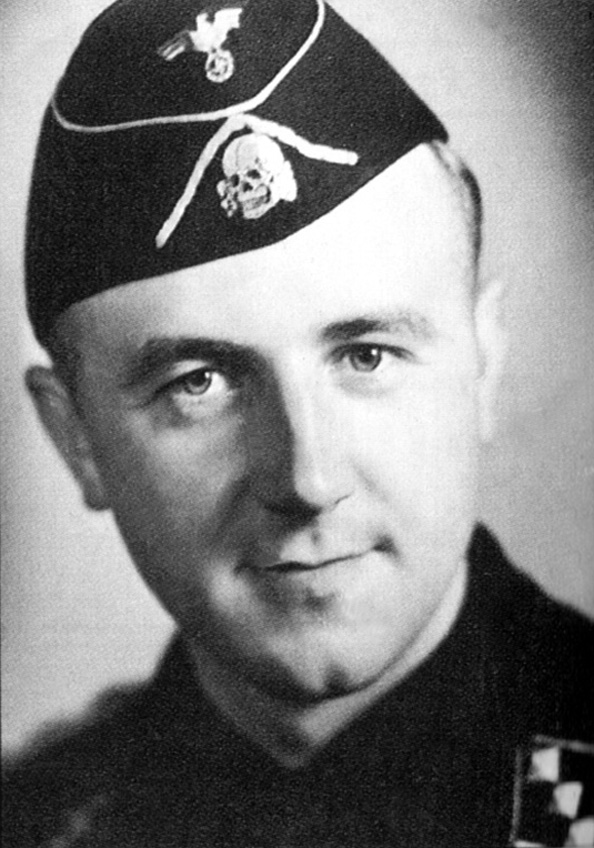


This 1990 interview was done with Hauptsturmführer George Isecke, member of LAH (Leibstandarte-SS Adolf Hitler) and HJ (Hitler Youth) divisions.

Thanks for meeting with me, I would like to start by asking what attracted you to join the SS?
George: For me it was an easy decision. I was somewhat a latecomer to the LAH. I can describe the SS as a cross between the Roman Pretorian guard, and the Kaisers Lifeguard hussars, very elite and dedicated. It was very hard to get into the SS before the war, you had to be referred, pass exams, and pass very tough screenings. I still remember the medical and oral exams given.
Reichsführer-SS Himmler designed the SS to be a new vanguard for Germany, which would move us into a new age, totally dedicated to the people, and for their eternal existence. We had to prove our ancestry was truly Nordic German. By this, I mean the people of Germany, who are part of a specific tribe of Nordic peoples, have distinctive racial features. Himmler saw this line under attack, and came up with a plan to ensure our peoples survival by keeping genetic health a focus.
The SS was seen in NS Germany as a very elite group, if you were in the SS, you were really someone. We would receive great benefits, good pay, respect, and even some power in the state. It was a natural choice for me to make, even if I did have friends pushing me to join. This was a good spring board to use for advancement in either the military, or in business.
I have been taught that training in the SS was bizarre, live bullets used on recruits, hand grenades on the helmet, and thorough brainwashing, day and night, can you speak about this?
George: I am afraid you are getting some bad information junge. Some authors like to portray us as a type of supreme soldier, superior to all, which we were not. We bled and died just like anyone else. What set us apart is we had a firm belief in the correctness of our beliefs, and a loyalty to our leader. We did use live bullets, on the shooting range, grenades on special courses, but never on our helmets. We had enough accidents during training that we had to be extra cautious. Most men had no military training at all, so this was their first taste of weapons handling.
We did have political discussions, but it was more to learn about world events, in informal settings. Sometimes our leaders would pull us into a training room to review changes in laws and state policy. We of course were expected to read Mein Kampf so that we had a good understanding of what caused our NS revolution. Many of us had already read it, which is why we wanted to be a part of the movement. Not every SS man was a member of the NSDAP.
Our early training was very focused on drill, marching, and tidiness. It was going to bed early, getting up early, exercise, running, swimming, and other forms of gymnastics. We would have inspections, and based on how they went it, it meant a day of freedom, or work. We also were sent out into the community to help the elders with chores, and cleaning. I was paired with a veteran of the 1870/71 war. I admired his iron cross and hoped to earn my own someday. He was very old and fussy, but enjoyed the work we did for him. Therefore, that was our early training, very physical, much marching, and menial tasks.
Did you ever meet Hitler since you were in the LAH?
George: yes, a few times. We bore his name and he visited with us often. A comrade told a good story to me. He was a guard at the chancellery, and it was a hot summer in 1939. The Fuhrer arrived late where it was already sweltering. He was concerned about his soldiers in their black uniforms, and asked they be relieved often, and be sent lemonade. Therefore, they were given a glass of lemonade to drink while on guard duty, unheard of, but this was the Fuhrer.
There was a story that he went swimming in our pool at Lichterfelde, but I never saw this.
I understand you fought on the east front with the LAH panzer regiment, what was it like for you?
George: Yes, I had an interest in the new weapons, and saw what they could do in Poland and France. When we attacked Russia they were used to great effect, but there was always too little, and they were quickly outclassed by the T34 and other Russian designs. I was promoted to an officer and served with some very well-known names. We certainly were well known to Ivan, as they put prices on our heads.
The LAH panzer regiment beat Ivan, repeatedly, anywhere our panzers went our kill tally soared. Sepp Dietrich and Paul Hausser made sure we received the very best equipment, much to the army’s disdain. I was able to ride in the new long barrel mark IV, and witness it knock out T34’s at a long range, something we missed before. We could only use our 75mm anti-tank guns for that purpose up to now.
A problem panzer units all had was these machines were really machines and broke down often. Sometimes at the worst possible moment. I saw this many times, and our recovery crews were the heroes of the unit repeatedly. I liked wearing the black wrapper, as when I helped with maintenance duty, the dirt could be minimized. For really dirty projects were donned special fatigues so that we wouldn’t ruin our wraps.
What was your impression of the Russian soldier?
George: He was a curious fellow. Most were terrible people, and even worse solders. They had no discipline and when put in holding areas they sometimes behaved like animals, stealing from each other, fighting, and even killing. I saw this in 1941; a political officer ordered the killings of prisoners who helped us. I know he was taken out and shot, and after this, no political officers could be housed with regular soldiers.
I want to add something regarding war crimes, today we are accused of all manner of crimes against every law and treaty signed. From the very early days of Barbarossa, the Russians violated the rules of war, of course, today they try to turn the tables on us, but I saw firsthand murdered soldiers, shot in the head, who had clearly surrendered. This plagued us for the whole war. We had strict orders to adhere to The Hague, and Geneva conventions. Our leaders reviewed these laws of war with us, as we were front line soldiers.
It was hard for some to control their anger however, as sometimes the guilty, especially the political officers, paid with their lives when caught. They were especially cruel to the civilians in areas they recaptured; it seemed anyone who was friendly with us was killed, I saw this firsthand as well. I want to add that we were very friendly with the Russian population, they gave us food, shelter, and many men had Russian girlfriends, even though we were told to not engage in sex as it could infer we are taking advantage of the women, many did not follow this, as they found Russian women attractive.
How did you end up with the HitlerJugend division?
George: By the year 1943 I was a seasoned veteran of the east front, and proved my worth, I was with Max Wunsche who is very well know. He was asked to join a veteran corps of a new division and accepted. I was his adjutant so when he went, so did I. It did not take any convincing. I must saw when I found out this new division was to be made up of young HJ boys, I was very skeptical it would be effective. We started training piecemeal in late 1943.
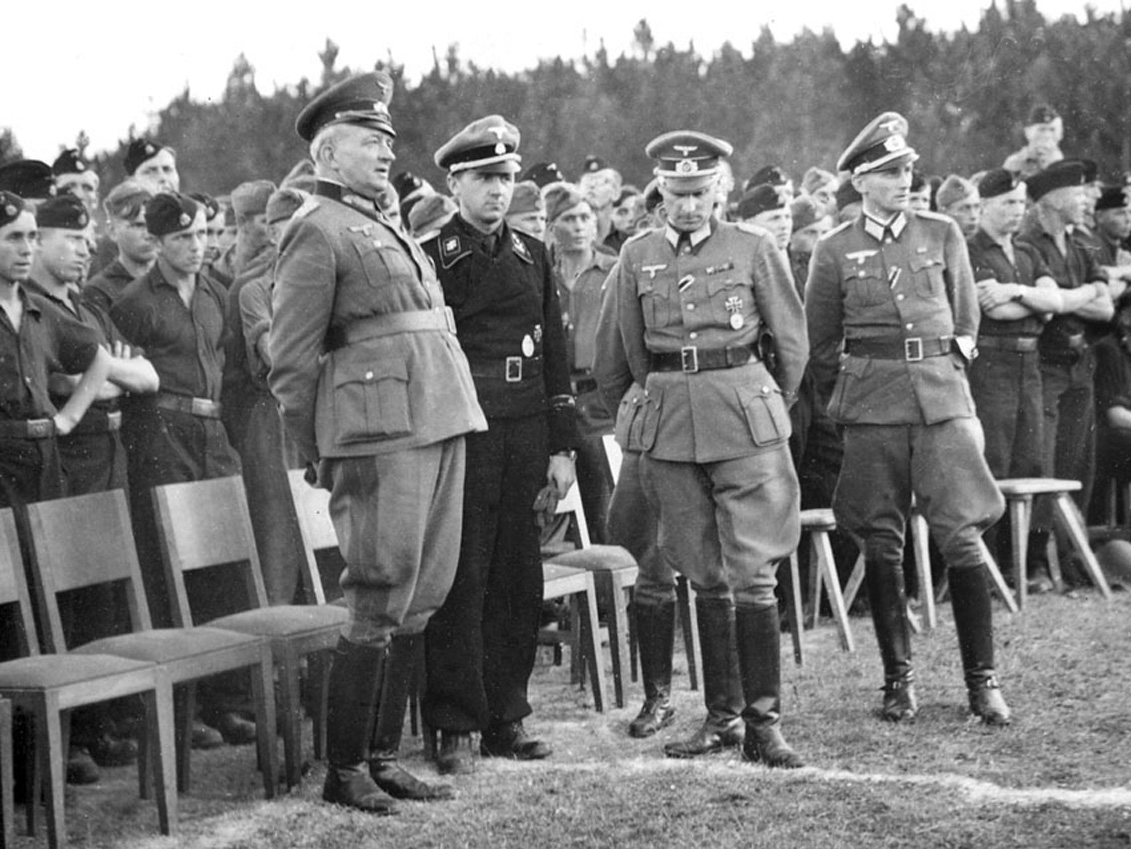
[Above: George Isecke (second from left, wearing the black Panzer uniform) at a Sportfest with members of 12th SS Panzer Division Hitlerjugend.]
What was the training like?
George: It was very different from what I went through, we tossed out all the drill and polish, we focused solely on combat tactics, and getting these boys ready to fight. Everyone knew a new front would happen, and the logical choice was the north coast of France. Our training was done in Belgium and the surrounding areas were made a huge training area, and war games were done weekly.
This new division slowly came together, and the boys who were all 17 and 18 were very eager to get at the enemy. I was with Max in the Panzer regiment of the HJ division, and we took the crews out often, getting them so familiar with the Mk IV, they could jump in, start, and be ready for action in under 2 minutes, in the dark.
The panzer regiment was given good panzers, and even some panthers came our way, but from the experiences at Kursk, we were leery to see them in combat, but engineers assured us teething troubles were worked out. The division really came together so that by March 44 we were fully ready for action, and eager to face the Allies. Everyone had guesses as to where the Allies would land. I want to tell you the Belgium population was very friendly to us, an example was a motorcycle for a dispatch rider broke down, and a farmer loaded them and their bike on his cart and brought them to us, with full bellies. Meyer made sure he was paid for his petrol and time.
Did you see any instances of resistance to the division or German forces in Belgium?
George: No, in Belgium, all the civilians behaved correctly, and so did we. We would occasionally hear of pro-allied pamphlets being found, but we believed allied planes, who actively encouraged the population to fight and resist us, against the rules of war, dropped these. We had a very good relation with all the locals. I even had a widow who would make our staff pastries and other goods. Her daughter was studying at university, and often hung out with the boys teaching them poetry.
Once we got into France things changed, the Allies had agents along the coast who worked with getting French civilians to resist us. On our way to Normandy, there was an incident where a train was derailed with explosives, killing the conductor and a soldier, for this, guilty people were shot as terrorists. We were in France since March of 1944, and we had no issues with the civilians, they were quite friendly to our young boys. We did hear of other incidences, and always to be on alert for spies and sabotage.
We captured a spy who was dropped at night, and fell too hard breaking his leg, a patrol found him and brought him in, where we called the police to take him away. Therefore, the Allies tried to be very active in our area. I started to notice an increase in air activity by April; we knew the time was coming, they staffed and attacked some of our areas, giving us our first casualties.
What was the beginning of the invasion like for you and the division?
George: We were on alert status the first week of June, but Witt advised that weather reports could prevent the invasion at this time, regardless our boys were ready. I was eager, as air activity was happening every day, railyards, bridges, roads, and bases were bombed often. Instances of trees being felled, mines being laid, and people doing strange surveillance were being seen all over Normandy. Therefore, on morning on the sixth I was not surprised to hear it had begun, we were moved into battle areas by Caen, and promptly brought under fire by artillery and fighter-bombers. We suffered causalities due to this, and several Frenchmen came to tell us allied soldiers had been dropped behind the coast.
German units were very confused, and there was much anger that more units were not allowed to move up. Rommel was away, and the Fuhrer was not getting good advice from the army leadership. The Allies seemed everywhere, and battle sounds were heard in front of us, to the rear, and on the sides. Witt feared we might be in a trap to encircle us, so he ordered an attack at once. That was our first taste of the invasion.
Can I ask a very personal question, I know many are leery about discussing war crimes, but you and your battalion were accused of killing Canadian prisoners? Can you enlighten me as if it is true and what happened?
George: Ahhh, this is a popular topic with people these days. Your president visited a cemetery with a few fallen SS soldiers, and all of sudden everyone is pointing out SS crimes, all misunderstood or fables. The Canadians were the first soldiers we faced, and I recall on the day and night of June 7/8, they attacked our lines which were manned by both SS and Wehrmacht soldiers. A few of our boys came to HQ and reported they witnessed the enemy shoot surrendering soldiers. Our commander made the point that we must follow the rules, even if our enemy does not sometimes.
At the same time, a diary was produced from a dead officer, where it stated the Canadians were not taking prisoners, as was ordered from higher up. This confused us, as the western Allies always were said to be following the same conventions we did. Meyer gave orders to bring captured Canadians we had for questioning, to his amazement one actually told of that order, while the rest denied any knowledge, and said they would treat any surrendered German with kindness, but the situation made then state that I believe.
Rumor spread through the battalion about this; however, Witt and Meyer were quick to say they wanted to be cautious, as more information was needed. However, more reports came in that German soldiers were found shot down instead of being taken prisoner. Now what I know is that many prisoners were led away to the rear, and the Canadians maintain we shot them all. I will say it is possible, due to what is called the fog of war, or rage at what our men had seen.
An angry, confused officer could have ordered it, thinking this was the way the Canadians were going to conduct themselves. To our credit, at the same time, orders were issued that we would take any and all enemy personnel prisoners, we were not like our enemy, cruel and sadistic. We were all found to not be liable of this in court, and some reports are sealed that deal with the Canadian orders, I learned after the war that in deed orders were given by them to not take prisoners. Why they did this I can only guess, but I believe the propaganda they were subjected to in England caused a hatred that only murder could tame.
What was the battle of Normandy like?
George: It was hectic, the superiority the Allies had was truly mind blowing, and we put up a good fight against impossible odds for two months. The HJ division was mainly used to secure our front and hold a defensive line. We took hit after hit from the Allies, and sometimes we attacked them with great success, only to be driven back by artillery and their never-ending supply of men and machines.
I am very proud of what our boys achieved, young inexperienced soldiers held off some of the Allies’ best. They caused our enemy great losses, and fought with honor and determination you would expect from such an elite group. I was very proud to serve and lead them. My fight in Normandy was ended in early August.
The Americans lead a breakout on a flank, and they rolled up our defensive lines. The Canadians and British also joined in and broke us on the opposite flank, now we were in retreat. As I was separated from my friend and commander, I was caught by an American patrol while trying to get back to our lines. I will say American soldiers were very rough and not professional at all. They hit me and stole from me, which was against the rules, and today they dare say they only did it because we did. That is false.
We treated our surrendered enemy with respect and kindness, treating the wounded, and making sure they stayed safe. Once I saw a group of prisoners attacked by their pilots and our soldiers went to great lengths to protect them at their own peril. The only bad incident was what I previously mentioned, and that, more than likely was a reprisal act due to our enemy killing their prisoners. They bear as much responsibility as any of our men.
I ended up being sent to a few camps, and the best was in Scotland 1946 where the camp commandant was a former prisoner in one of our camps. He was very well treated and returned his thankfulness on us. He is who made me want to return to Scotland, they are closely linked to our Germanic roots, and have a deep sense of honor and love of our European homeland. I want to close by stressing the court proceeding against the division led to dismissal of charges, and vastly reduced sentences.
[Above: George Isecke, so many years later...]
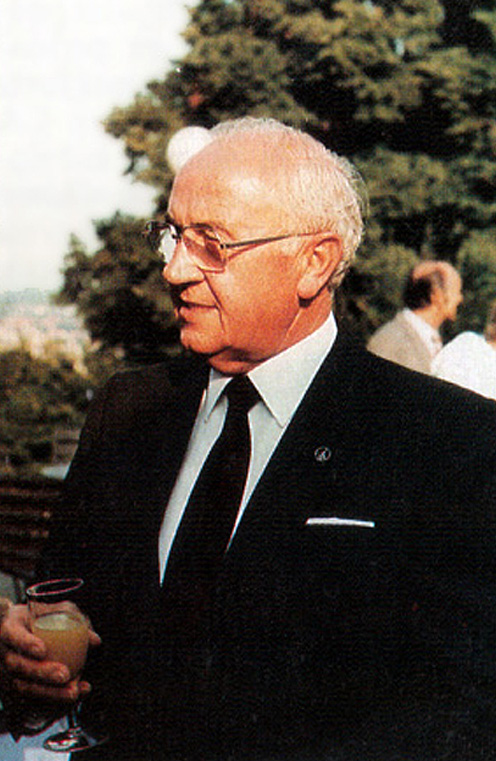
Back to Interviews